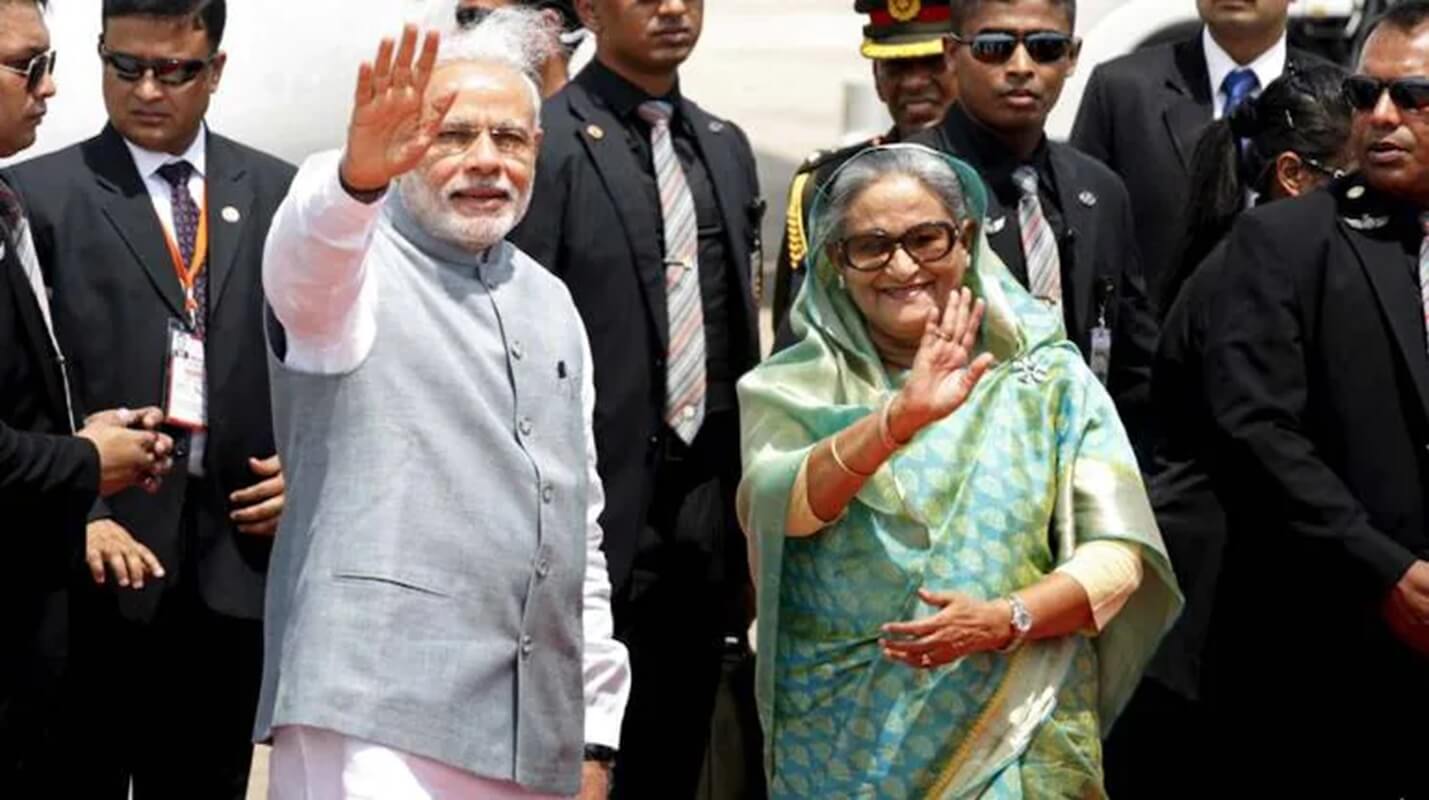Bangladesh: As Elections Draw Close, India Needs to Rethink Its Strategies
Pratim Ranjan Bose | 24 December 2023
Holding a free and fair election was never a virtue of India’s eastern neighbour. But elections had never been as consistently farcical either. It would be of keen interest to know how the prevailing scenario in Dhaka had been helping and would help the Indian cause
Come January 7 and Bangladeshi Prime Minister Sheikh Hasina’s Awami League should win another – the third in a row - managed election to return to power, for the fourth term. A total of 29 parties including League and a faction of the third-largest, Jatiya Party, will contest the election. The rest in the fray, do not count. The principal Opposition, jailed KhaledaJia’s Bangladesh Nationalist Party (BNP) and 14 others are sitting on the fence.
It looks like a rerun of the 2014 election when League won an Opposition-free election. The less said about the 2018 election the better. Hasina cornered 75 percent votes and 85 percent seats – arguably a world record, while the BNP got seven seats for 13 percent votes. Historically, both BNP and League had over 30 percent core votes.
Army was at the helm in Bangladesh between 1975 and 1990. The voters swung between BNP and League after every five-year term during 1991-2008. Going by the public mood, the Opposition would have swept this election. But Hasina didn’t leave much scope for them to contest. Arrests and intimidation peaked to convert the election into a paper contest.
Holding a free and fair election was never a virtue of India’s eastern neighbour. But elections had never been as consistently farcical either. It would, therefore, be of serious concern if the blame is passed on to India. It would be of keen interest to know how the prevailing scenario in Dhaka had been helping and would help the Indian cause.
Despite all the drumbeating about bilateral co-operation, the last five years were marked by unprecedented consolidation of Chinese interests in Bangladesh while Indian interests suffered.
The recently inaugurated 10km Agartala (Tripura)-Akhaura (Bangladesh) rail link is a case in point. The India-sponsored broad-gauge project should suffer low utilisation, as Akhaura-Dhaka is connected by metre-gauge. Agartala-Dhaka-Kolkata seamless rail movement is a distant dream.
Similarly, Dhaka granted Northeast India access to Chittagong port. India is barely six months away from completing a mammoth rail-connected, integrated check-post at Sabroom in Tripura to facilitate port connectivity. But there is no progress on the cargo facility on the Bangladeshi side.
No Other Option?
Delhi overtly supported Hasina both in 2014 and 2018. India was cautious this time and maintained a low profile when compared to the US, Western Block and China. But that didn’t help.
Prominent Awami League ministers –who were not known for favouring India in policy decisions vis-à-vis China – didn’t leave any opportunity to tell the media, privately or publicly, that they enjoyed Delhi’s backing. Some even reminded that India had no option to look beyond Hasina.
Remarks like “I told India that Sheikh Hasina has to be kept in power,” made front-page headlines in Bangladesh. As democratic rights and aspirations were blatantly denied, in the name of India, Delhi became a villain in the eyes of common Bangladeshis. And, that is dangerous.
Leaving the narratives apart, India was never popular in Bangladesh, not even in December 1971, when Delhi became a party to their Liberation War. This is largely due to religious differences that were the prime inspiration behind the creation of Pakistan.
For all practical purposes, therefore, Bangladesh is an extension of Pakistan with some differences. And, traditionally, the Indian support base in Dhaka was limited to the minority Hindus and, a section of Awami League supporters, mostly from the elite society.
Since then, the ground situation deteriorated dramatically. Hindus became less relevant in Bangladeshi politics as their population declined from 13 percent in 1974 to seven percent. At Awami League, except for the signboard and Shiekh Hasina, everything else changed in the last 15 years.
Unaccounted power attracted all sorts of forces in the party and the government. The government too wanted to earn legitimacy by hobnobbing with staunch Islamist forces, like Hefazat-e-Islam, from which it once maintained arm’s length.
Even veteran Awami leaders now speak in a new language. Prominent leader and MP from Cumilla, AKM Bahauddin Bahar, recently equated the biggest Hindu festival of Durga Puja as the ‘festival of alcohol.’ As aggrieved Hindus brought out a protest march, they were beaten by the party activists. Bahar got a ticket for the 2024 election.
Who Is Using Whom?
And that takes us to the core issue. How are Indian strategies faring in Bangladesh?
That Delhi supports the Hasina government is no secret. But does that help the Indian cause? Understandably, China invested in Bangladesh's political and business class so much so that a mere change in power would not affect them.
The public mood is in favour of China and, Bangladeshi policymakers use it as an excuse to favour Beijing. Has India invested only in Hasina? Is it that Hasina thrives on India’s unpopularity in Bangladesh? If so, how does India gain by becoming more unpopular?
For its part, Delhi surely has security interests regarding Bangladesh. It is also true that Delhi had a nightmarish experience with the last BNP-Jamaat government between 2001-2006. But can that be a free pass to Hasina or should Indian stand remain a constant?
The US took a serious stance against the Atal Bihari Vajpayee government in 1998, after the successful nuclear test. Within a few years, they referred Delhi, with Vajpayee at the helm, as a key partner. In 2005, the US denied visa to Gujarat Chief Minister, Narendra Modi. Today, Prime Minister Modi enjoys celebrity status in the US.
Pratim Ranjan Bose is an independent columnist, researcher, and consultant.
This article was originally published on Money Control.
Views in this article are author’s own and do not necessarily reflect CGS policy.
